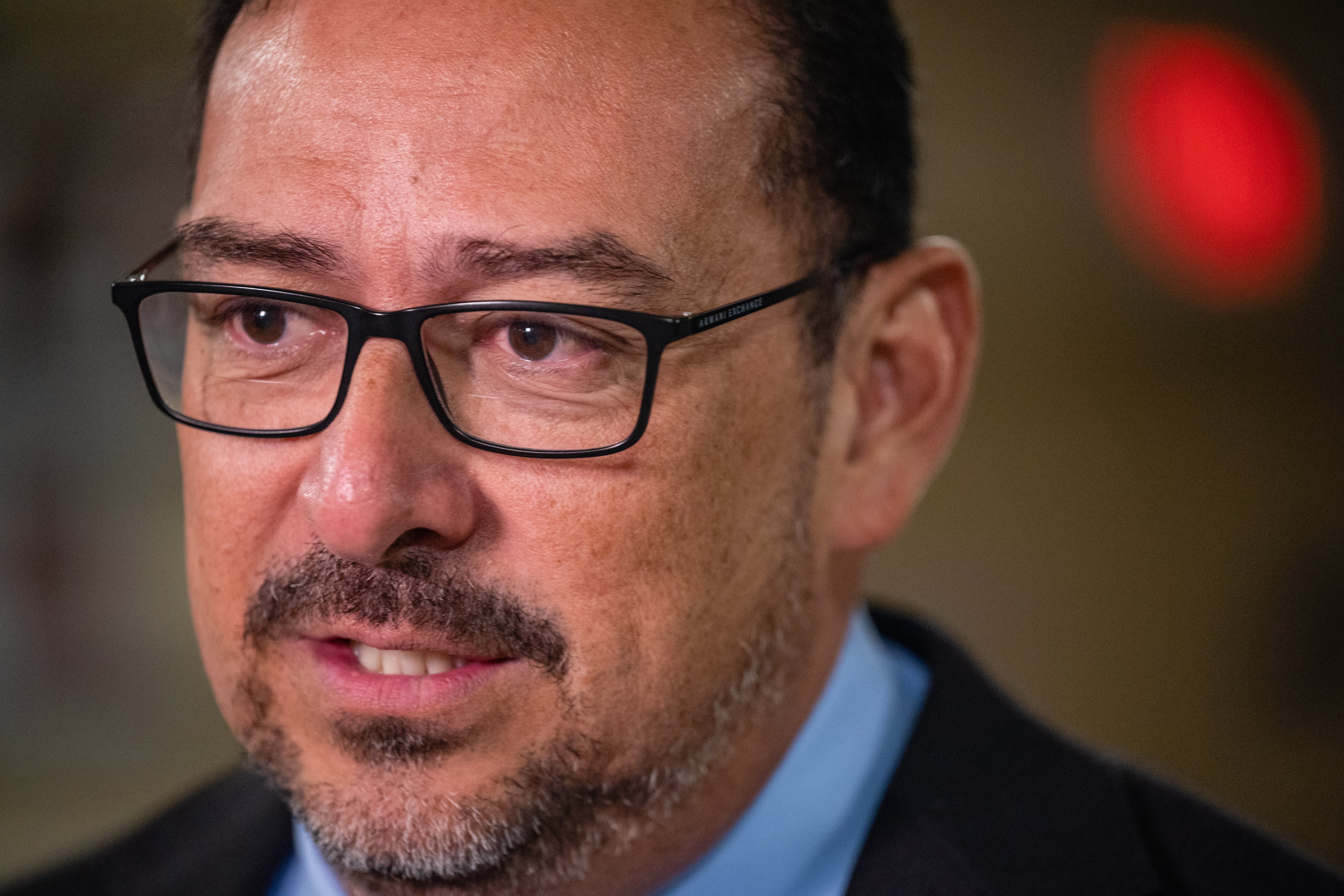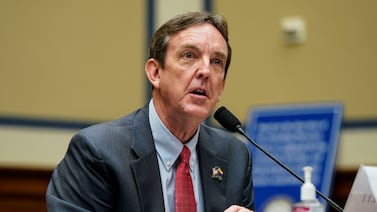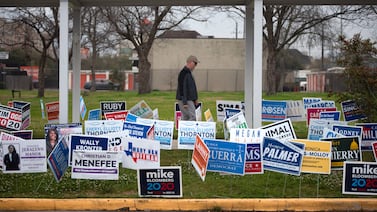Votebeat is a nonprofit news organization reporting on voting access and election administration across the U.S. Sign up for our free newsletters here.
As Secretary of State Adrian Fontes makes rules for how next year’s elections must be run in Arizona, Republican legislative leaders say he’s overstepping his authority. Voting rights advocates say he isn’t exerting enough authority.
The groups publicized their qualms this week with Fontes’ new draft of the state’s Elections Procedures Manual — the giant rulebook that instructs Arizona counties how to conduct elections to comply with state law.
Republican Senate President Warren Petersen and House Speaker Ben Toma accused Fontes of incorrectly postponing the implementation of a law requiring voter-roll clean-up, for example, and they say he is dictating in too much detail what voter intimidation looks like, such as following voters to their car or taking photos of them.
Petersen warned of “legal action” if Fontes doesn’t change his draft, saying in a statement that the draft “misinterprets Arizona election laws, unlawfully expands the powers of the Secretary of State, and subjects elections to a greater potential for voter fraud.”
Meanwhile, voter advocacy groups are asking Fontes to provide more instructions on many aspects of how counties run elections, including how counties provide voting access to voters in jail and voters with disabilities, and on how counties must use machines to tabulate votes instead of hand-counting ballots.
All Voting Is Local and other voting rights groups were looking for Fontes to create a manual that has rules “that are most permissible and provide the most access for all Arizona voters,” Rosemary Aliva, the organization’s senior Arizona campaign manager told reporters at a news conference Tuesday. The organization joined 10 other voting rights groups in a coalition to send a letter of requests to Fontes on Tuesday, along with individually sending a 64-page document requesting specific edits.
Scrutiny of the 259-page document is heightened this year in part because of the high stakes of running elections in a swing state as a presidential election approaches. But also, challenges during the state’s 2022 election left some county election officials and state lawmakers in hopes of clarity or changes to state election laws. Those challenges include real mistakes, like ballot printing problems in Maricopa County, but also GOP challenges to time-tested processes such as using machines to count votes and requiring county supervisors to certify election results.
Changes to the state’s laws didn’t come to pass in this year’s legislative session, as partisanship derailed most bills — both because of a slim Republican majority in the statehouse and Democratic Governor Katie Hobbs vetoing any significant proposal to come to her desk. That meant some were looking at Fontes to provide more detail on these controversial voting topics in the manual — not less.
But Fontes didn’t approach his rewrite in this way. As the state sees an influx of new top county election officials, Fontes told Votebeat earlier this year he was stripping down the manual because he wanted it to serve as a straightforward rulebook for those new administrators, so they knew exactly what rules they had to follow — and nothing more. In doing so, he cut the manual by about 14 pages, including several entire sections.
Fontes then shrunk the public comment period to 15 days, down from the 30 days offered in past years, drawing ire from Republicans and a grassroots election integrity group that said he was trying to stifle feedback.
Fontes’ final version will go to Gov. Katie Hobbs and Attorney General Kris Mayes in October, who must approve it by December for it to take effect.
While Fontes takes the approach that new county administrators need just the rules and nothing more, Aliva said the voting rights groups believe these new administrators need more details, not less.
“This manual is critical to assist them to carry out the duties of their job,” she said.
One of their big asks is for Fontes to add back a section that he removed on how counties must open voting access to people in jail who are still eligible to vote, and how they must notify people with felony convictions of their right to vote once they complete their sentence and the process on rights restoration.
They’re also concerned about the many areas where Fontes changes instructions from “shall” to “may,” or “must” to “should,” essentially removing rules county officials had previously been required to follow. Voting advocates believe that will lead to weaker and less uniform voting access around the state.
For example, a requirement that the county recorder “shall establish” on-site early voting at the recorder’s office now says “may establish.”
Fontes previously told Votebeat he tried to stay true to what law allows when drafting the manual, considering not what he believed should be in there but what legally could be in there.
“I have to be cognizant of not just what I want to see in there, but what the consequences are two, and three and four steps down the road,” Fontes said.
Despite that caution, Petersen is threatening to sue.
He says that one of the “most notable errors” is what he believes is Fontes postponing the implementation of a 2021 state law that requires county officials to begin the process of removing voters from the vote-by-mail list, or Active Early Voting List, if they don’t participate in an election for two general election cycles. County administrators were previously under the impression they would start this process of removing voters after the 2024 cycle. Fontes, in his draft, says that shouldn’t begin until after 2026.
This is where Petersen claims Fontes, by not requiring those removals sooner, is “opening the door for ballots getting into the hands of unintended individuals.”
There have been few convictions in Arizona related to people trying to illegally cast others’ ballots, though, and other rules – such as a requirement to sign your ballot envelope — are set up to prevent vote-by-mail fraud.
Petersen and Toma also say Fontes doesn’t have the authority to use the manual to provide rules on voter registration, to extend the early voting period for military and overseas voters, and can’t perpetuate the use of ballot drop boxes, “which have no basis in statute.” The manual has explicitly allowed ballot drop boxes since the 2019 version.
The changes Fontes made to the manual related to hand counting ballots, and whether hand counting is allowed under law, has drawn scrutiny from both lawmakers and voting rights activists. State law doesn’t explicitly state that counties have to use machines to count ballots, leading to recent debate and an increased importance of the manual on this topic.
While he added language saying that full hand counts of ballots can’t happen in certain elections, that language appears only in the section on post-election audits, making it unclear if Fontes meant the rule to apply to the initial count of ballots, too.
While voting rights groups say Fontes should be even more clear about the hand-counting rule, Petersen and Toma say he can’t make this rule at all.
Jen Fifield is a reporter for Votebeat based in Arizona. Contact Jen at jfifield@votebeat.org.








